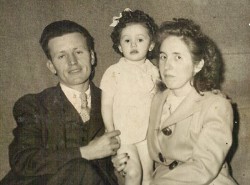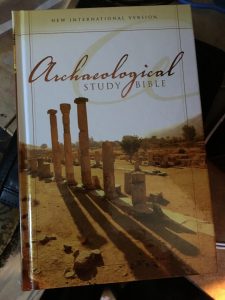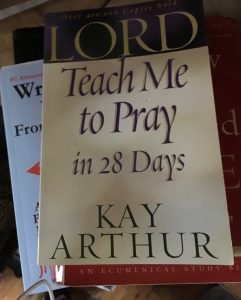As Americans, we have privileges that we frequently take for granted or completely ignore. We can complain, whine, or rant about things we dislike from politics to prices. It may not do much good, but we won’t, usually, be threatened with arrest because of it. We can vote, but too many of us don’t bother. We can choose what jobs we want to do, how we want to dress, who we want to have for friends, what religion we prefer to practice or not.
Most all of us have privileges of one kind or another. Privileges that we take for granted or don’t even realize other people don’t have. It is part of the human psyche to think our lives are the norm and everyone else has the same benefits that we do.
We may see other people’s privilege that we don’t enjoy and feel envious. But, other than the homeless (Who we tend to think are there because of their own faults.), we usually assume that everyone else’s life is the same as ours. Most of the people we associate with have the same privileges we do. We seldom think of how different it can be for those outside our circle or even some within it.
What is life like for the couple who aren’t able to have children? How is the young mother who just got divorced coping with custody arrangements and a reduced income level? How does the couple of mixed race or religion deal with the prejudices that they run into? What effect does that stress have on their relationship? What is it like to need to explain to a six year old why some people don’t allow their children to play with her?
There are so many ways that we are privileged and as many ways that we are not. When I was younger, the majority opinion was that I was privileged to be naturally slim. It didn’t feel like privilege to me though. I knew that 104 pounds at 5’6″ was too skinny, but I couldn’t gain weight. No matter how much or what I ate, I never gained a pound. I never had to worry about getting rid of “baby weight” because I weighed exactly the same after my children were born as I did before I got pregnant. People who have trouble controlling their weight would call that a blessing, to me, it was a curse.
Then, I quit smoking and going dancing on weekends. I turned 50. My natural metabolism slowed down and I gained 75 pounds in less than a year. Ever since, I’ve been struggling to keep the weight off. It seems there is no middle ground. But, I call it a privilege that I was able to arrest the gain, have been at a stable size for the past 10 years, and my health is good. At 74 years old, I take no prescription drugs, have no major health problems, and am not in daily pain. That is privilege of the best kind.
Your privilege isn’t something to be ashamed of or feel guilty about. It isn’t your fault that other people have problems you don’t. They may also have privilege that you don’t. The important things are to realize your privilege, to know that not everyone is fortunate in the ways you are, to stop and think before judging others, to believe that your viewpoint and experience may make it difficult for you to understand their actions and reactions. Check yourself for privilege and then give others some leeway in your expectations.
Wikipedia says that “Privilege is a social theory that special rights or advantages are available only to a particular person or group of people.” Perhaps that is accurate as far as it goes, but I think whoever posted that page is privileged to have a narrow view of the subject.
How privileged are you? I took this quiz on Buzz Feed as research for these articles. I scored 52 out of 100 possible points. My results say that I am “quite” privileged. I am not bragging. I am feeling very humble. I count myself privileged in every sense of the word and I hope that I have empathy for those who are less fortunate.
 My first privilege was a stable home environment. I was born to a happily married couple of honest hardworking people. They didn’t marry until they were 30 and 31. They had known each other for about five years. I was born a year later and from that day until my father died, I never heard them argue, never saw them angry with each other. I’m not saying they never disagreed, just that they worked out their problems quietly and without letting it affect us kids. As far as we could tell, our parents had the perfect marriage that lasted more than 35 years.
My first privilege was a stable home environment. I was born to a happily married couple of honest hardworking people. They didn’t marry until they were 30 and 31. They had known each other for about five years. I was born a year later and from that day until my father died, I never heard them argue, never saw them angry with each other. I’m not saying they never disagreed, just that they worked out their problems quietly and without letting it affect us kids. As far as we could tell, our parents had the perfect marriage that lasted more than 35 years.  To truly understand God’s Word requires more than simply reading a convenient copy of it as though it were a history or biography. Ideally, to delve deep and truly understand, we would read the texts in their original languages. For most of us, that is impossible. Even if such copies were readily available to us all, we simply don’t have the necessary language skills.
To truly understand God’s Word requires more than simply reading a convenient copy of it as though it were a history or biography. Ideally, to delve deep and truly understand, we would read the texts in their original languages. For most of us, that is impossible. Even if such copies were readily available to us all, we simply don’t have the necessary language skills. Over the years, I’ve said the Lord’s Prayer thousands of times. I’ve taken part in study groups that discussed it. The consensus being: we frequently tend to simply recite it without thinking about the meaning of the words. The second factor being: it was never meant to be an actual prayer, but an example of how to pray. I was looking for a book that would take this idea and expand upon it.
Over the years, I’ve said the Lord’s Prayer thousands of times. I’ve taken part in study groups that discussed it. The consensus being: we frequently tend to simply recite it without thinking about the meaning of the words. The second factor being: it was never meant to be an actual prayer, but an example of how to pray. I was looking for a book that would take this idea and expand upon it.